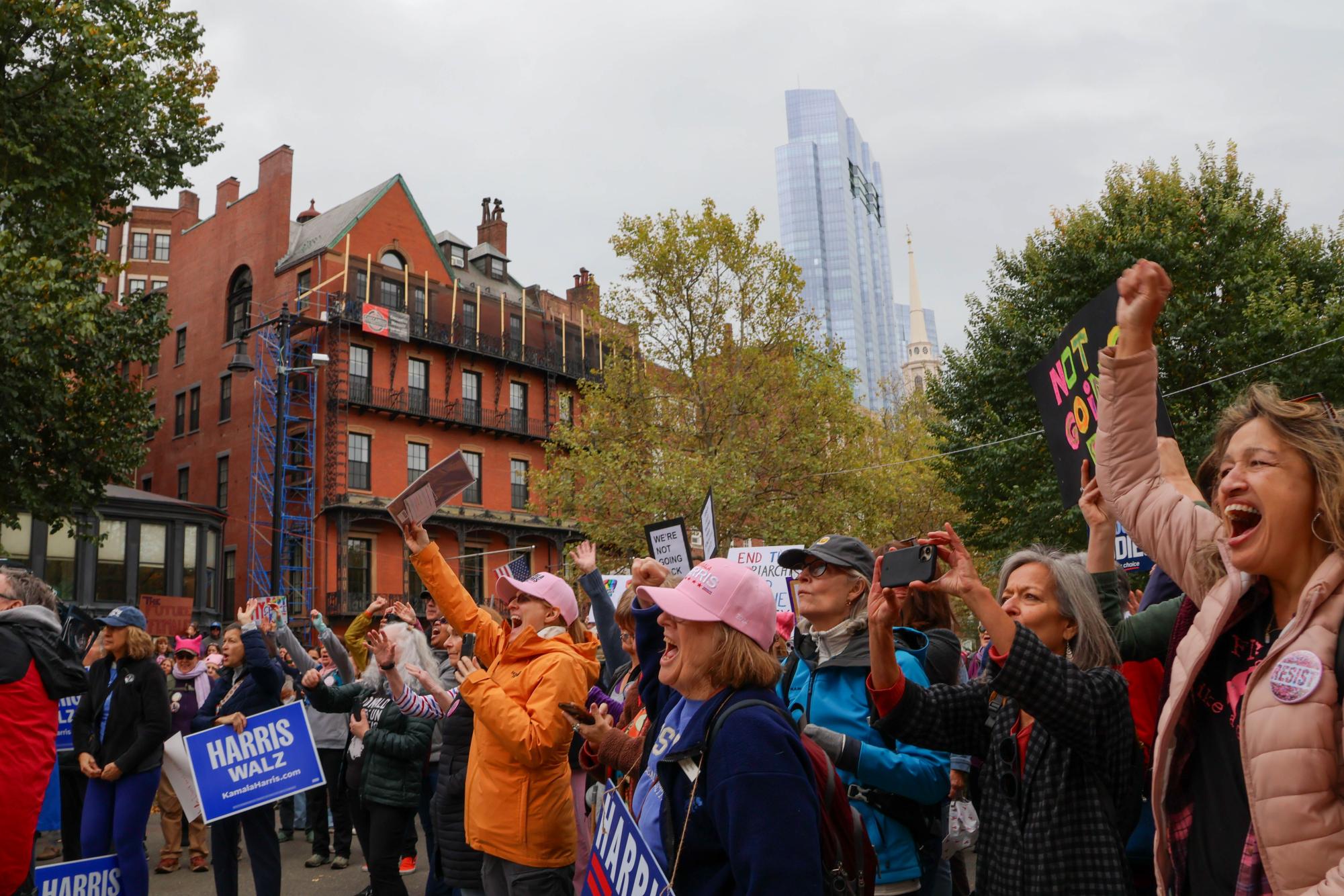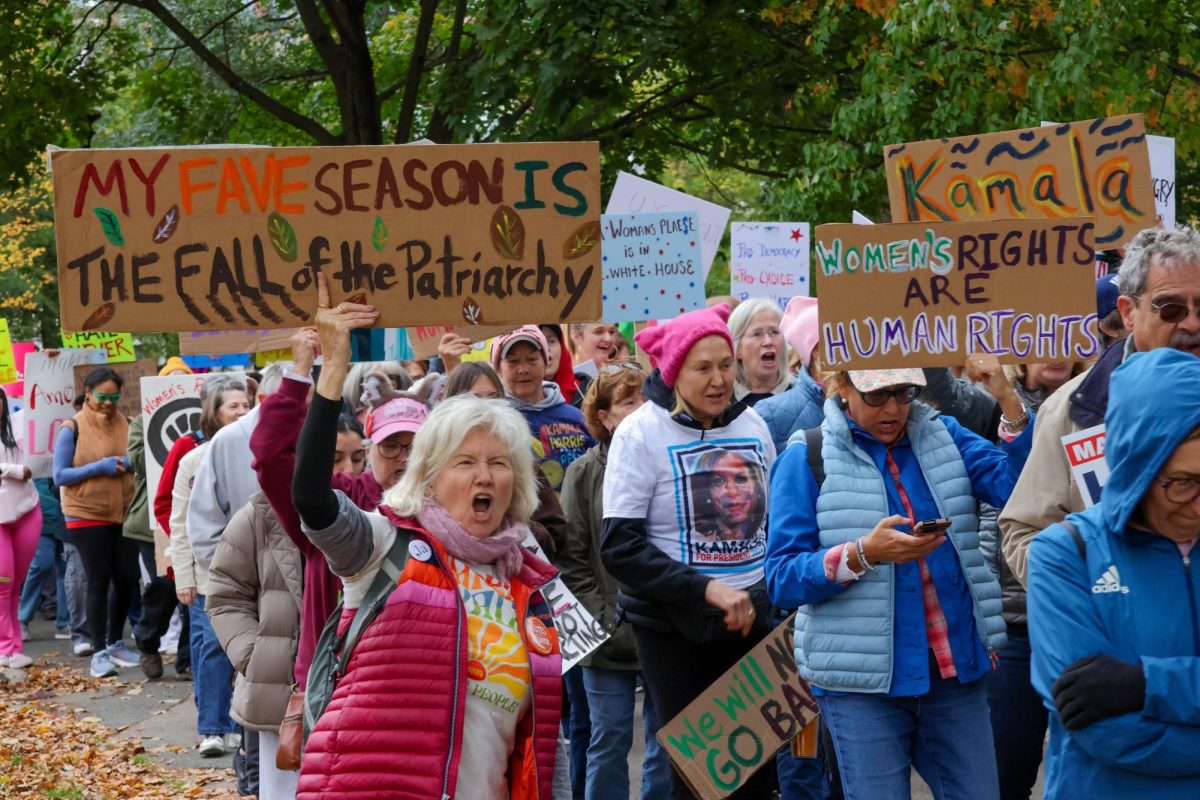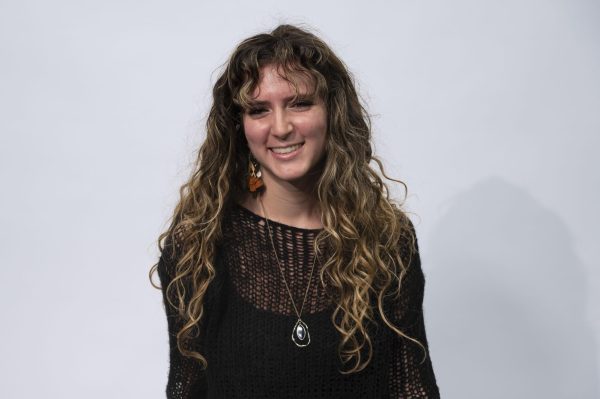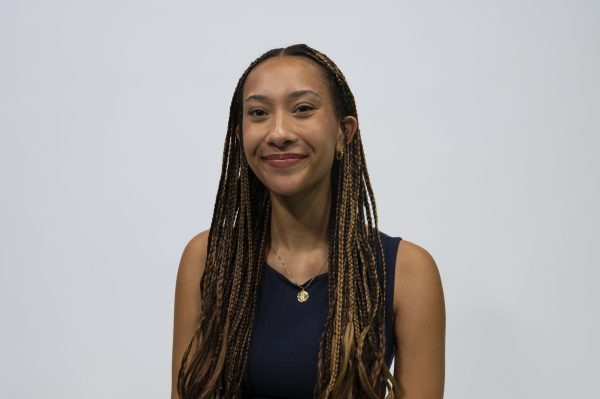In 2017, thousands of Massachusetts residents mobilized for the Boston Women’s March to protest the threats former President Donald Trump posed to women’s rights. On Nov. 2, nearly a decade later, hundreds — young and old, men and women alike — rallied around the Massachusetts State House with a fierce dedication to protecting those same freedoms.
Such liberties remain precarious with Trump’s reelection three days later.
“The stakes are clear: it’s freedom vs. fascism,” read the Boston Women’s March mission statement. “This November, we must deliver a decisive defeat to those who threaten our rights, freedoms and futures.”
Almost 800 demonstrators poured into Boston Common, signs displaying “My Body, My Choice” and “Women’s Rights are Human Rights” held high above the sea of pink-clad heads — a callback to the women’s marches in 2017.
The event kicked off at 2 p.m. just outside the State House, opening with words from head organizer Tracy Murphy.
“I salute every woman here from every walk of life,” Murphy said, addressing the broad range of girls and women before her.
Speakers James “Jimmy” Hills of the internet talk show “Java with Jimmy,” and Dana Alas, executive director of the Mayor’s Office of Women’s Advancement, followed.
“Thank you for being here, for exercising your voice and for making sure everyone knows that we’re not going back,” Alas said. “When women move, the country moves.”
Speeches concluded with impromptu remarks from Rev. Debra Haffner, a unitarian universalist minister. From there, the march began, winding through Boston Common.
As they marched, crowd members called out chants that a booming collective voice rhythmically repeated.
“Show me what democracy looks like,” pierced the Common’s typical midday chatter, met with, “This is what democracy looks like.”
With 72 hours until Election Day at the time of the march and the future seemingly hanging in the balance, for the protesters on Boston Common, there was a palpable sense of déjà vu.
“I went to the march in New York City in 2016 after Donald Trump was elected,” said Angie Pisacane, a 25-year-old South Shore resident. “I feel privileged that I’m able to do this march and be here, but I’m also so frustrated that it needs to continue to happen.”
The former president’s controversial comments toward and treatment of women were brought to light when he announced his candidacy eight years ago. With Trump’s inauguration came a flood of demonstrators, marching and rallying for gender equality.
“If a march has to happen in January, then we will be there too,” said Ava Needel, the president of Nauset Regional High School’s feminist club.
When conservative Supreme Court Justices struck down Roe v. Wade, the constitutionally protected right to abortion, in 2022, Americans took to the streets again. Now, the daughters, granddaughters and great-granddaughters of the first wave of feminism feel they continue to fight for the same issues as their predecessors.

“It’s scary to think how much we’re going back, almost to the 1800s,” Needel said.
Still reeling from the landmark Dobbs decision that undid 50 years of precedent, abortion access and reproductive healthcare was a top priority for protesters.
“I grew up in the ‘70s, and we had the good fortune to have access to the birth control pill and abortion,” said Anne Harvey, a 66-year-old resident of West Roxbury. “I was actually a victim of a really tough miscarriage, and I was telling my friends a few minutes ago that if I hadn’t had access to healthcare when it happened 20 years ago, I could have died.”
Although many women have been fighting for generations, the struggle for equality continues.
“It all started from just wanting to do something. I felt kind of helpless,” Murphy said.
With more diverse allies than ever before, the women’s march had a wide-reaching support network to aid its endeavors.
“I’m gay, and I’ve found that women have always stood up for me and my rights and struggles,” said 17-year-old Raymond Hildreth, a senior at the Groton School. “I just really feel the need to return the favor and give them as much as they’ve given me over the years, because they’ve provided safe harbor when masculine spaces have been unsafe or toxic.”
Following the powerful demonstration, marchers returned to the State House for a final speech by state Senator Becca Rausch.
“It is so important that you are here today,” Rausch said. “How many of you are tired? How many of you are angry?”
Rausch left demonstrators with a resounding call to action.
“Do something with this energy,” she said. “We will not go back, but only if we put in the work.”
The Huntington News is dedicated to serving the Northeastern University community with original, professional reporting and creating an environment in which student journalists can learn from one another. Support an independent, free press at Northeastern University with your donation today.









![A demonstrator hoists a sign above their head that reads, "We [heart] our international students." Among the posters were some listing international scientists, while other protesters held American flags.](https://huntnewsnu.com/wp-content/uploads/2025/06/image12-1200x800.jpg)



